With a recent classic match against WWE Champion Daniel Bryan, Chicago, Illinois native Mustafa Ali has made his way into the professional wrestling world's mainstream consciousness. Long known to independent wrestling fans as one of the greatest wrestlers in the world, Ali's SmackDown Live match against Daniel Bryan has introduced the 205 Live stars to a growing number of new fans.
While the newbies were wowed by Ali's obvious charm, his high flying antics, and superb technical prowess, they were left yearning for more and with a burning question: Just who is this Mustafa Ali? Find out more about one of wrestling's best and brightest stars in 5 Things You Didn't Know About Mustafa Ali.
#5. Mustafa Ali Was Pushed To Portray A Terrorist
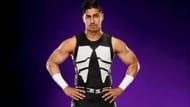
WWE has no plans for these former AEW wrestlers? Here's why!
Ali began wrestling at the age of 16 years old and from the moment he stepped into the squared circle, promoters were pushing him to portray a racist stereotype he did his best to avoid his entire life.
During a recent appearance on Chasing Glory with Lilian Garcia, Ali describes his first foray into the world of professional wrestling, "Every single person in the Chicago independent scene said, ‘You’ve got to be a bad guy. You’re a Muslim. We’re gonna make money. We’re gonna call you Sheik Abdullah something. You’re gonna wear a turban."
Ali fought against the biases which were so extreme they forced Ali to cover his own faith and wear a mask. Ali did all of this in an attempt to avoid prejudice, in order to simply just be known as a wrestler and not as a Muslim extremist.
For the first six years of his wrestling career, Ali hid his Islamic faith and instead wrestled as a Hispanic luchador. Ali told Lilian Garcia, "I literally wore a mask for the first 6 years of my career because I didn’t want anyone to know I was a Muslim, so I had to hide my identity."
Eventually, Ali did give in to the promoters' incessant demands and went against his better angels. Ali put on the turban as he was expected. As he 'turned on America' his bookings quadrupled, but he was never truly comfortable in his new role as an anti-American villain.
#4. The Eyes Of A Child Changed His Career
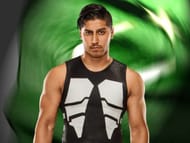
One of Ali's most significant moments growing up Muslim in America occurred on September 11th, 2001. As New York was under attack by Osama Bin Laden and his band of Al Qaeda extremists, Ali began to profess his faith and where he stood in the country of his birth for the very first time.
Ali remembers being deeply saddened by the attacks and mourning the loss of life. He truly felt American, but things began to change when he went to school. Everything began to change. Students were encouraged to talk about their feelings and one boy, who sat behind Ali, said, "I think we should go over there and kill them all." The statement, its ignorance and blind hatred stuck with Ali.
Later, Ali would enter the world of professional wrestling and although he was hesitant at first, he eventually accepted the close-minded character role of a Muslim terrorist. Ali would speak in Urdu and admonish America for its past evils, as angry crowds chanted, "USA! USA! USA!"
Much to Ali's chagrin, promoters loved the character. His bookings quadrupled and for the first time ever, Ali found himself on WWE's radar. Still, as an American born Muslim, he was never comfortable with the small minded box greedy and unscrupulous promoters packaged him in.
It all came to a head one evening as Ali wrestled for an independent promotion near his hometown of Chicago, Illinois. Ali saw a blonde haired blue eyed American child in the audience and the boy raised his fist to Ali. The two locked eyes and everything began to change for Ali.
Ali recounts the experience on Chasing Glory with Lilian Garcia
"I was like, ‘I taught this kid to hate people that look like me.’ It registered to me. I had this flashback to sitting in high school and understanding why that kid stood and said, ‘We’re gonna go there and we’re gonna kill them all.’ He didn’t know any better and I’m teaching that now. I went back. Done. I’m not doing this character now. I’m just Mustafa Ali and if they’re gonna boo me, that’s on them. I’m not doing the terrorist character. I refuse to do it. I never did it from that point on. Obviously [my bookings] dropped."
His bookings dropped initially, but Ali proved that sometimes making the most difficult decisions are the right ones and with time found himself working for the biggest wrestling company in the world.
#3. Ali Used To Be A Police Officer
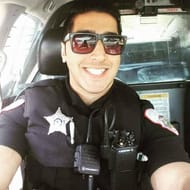
Mustafa's pre-WWE origins aren't limited to the world of professional wrestling. When a young Mustafa Ali endured a terrifying encounter with law enforcement, he decided that he would commit himself to the cause of justice and serve as a police officer.
Ali was no ordinary officer, however, and served his community like a superhero in navy blue. Gone were the common cold, 'Do you know how fast you were going?' phrases that are so routine among America's law enforcement officers. Instead, Ali would ask, 'Is everything OK? Is there something going on that would require you to go so fast?' Ali saw his position as that of a civil servant, as opposed to someone with the power to abuse.
Once, when Officer Mustafa Ali encountered a drug dealer, he inquired as to why the man was content living in such a reckless way. The dealer informed Ali that he was poor, a drug user himself, and had applied for more than twenty positions, but no company would ever hire him.
Ali became a force for good in the man's life. Outside of his own work hours, Ali took the man to get a haircut, bought him a suit, and helped him polish his resume. Ali was instrumental in turning the man's life around.
#2. Ali Nearly Worked Himself To Death
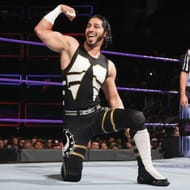
Mustafa Ali's father passed away prematurely and his son knows what took his life. Ali's dad was a workaholic and those tendencies contributed to his diabetes and his heart condition. Sadly, Ali has those same tendencies and has exhibited a dangerous drive to overwork himself.
One day, Ali awoke to find that he could no longer lift his own arms. After being cajoled into visiting a doctor, things only intensified from there. Ali was rushed to the hospital where a team of physicians diagnosed him with extreme exhaustion. Doctors told Ali, "‘Your CK level is like 987.’ They explained that with 1000 you’d literally collapse."
Ali had pushed himself to hard-working a loop of 205 Live shows. He was also working out relentlessly and dieting, as well. Like his own father, he had pushed himself to the brink and beyond what a normal human being could bear.
Ali's wife confided in him, "I had a serious conversation with my wife, who was like, ‘This is what happened to your dad.’ It sounds weird to say, ‘Yeah, I work too hard.’ I got caught up in it."
#1. Ali Doesn't Want To Be Known For His Background
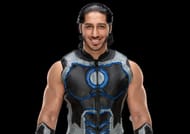
Mustafa Ali is the first ever Pakistani WWE Superstar; but, readers would be hard pressed to hear that fact from him. Ali doesn't want to be known as Pakistani, American, or Muslim. Instead of being known for a flag or what god he prays to, he just wants to be known as Mustafa Ali.
The 205 Live Superstar eloquently described his feelings to Chasing Glory host Lilian Garcia,
I found that throughout history that division is what hurts us the most. When you go, ‘I’m gonna cheer that guy because he’s from where I’m from country-wise. I’m gonna cheer this guy because he’s from this religion.’ What if he’s a piece of crap? Are you still gonna cheer him? I always found that division does no justice. What is true peace? Is peace just us co-existing? Peace is when I look at you and see nothing else but another human being and I would never let anything happen to you. I don’t see him or her. I don’t see us or them. I don’t see any of that. I see you and I. That’s what I see, so what I felt when they were trying to position me as the first Pakistani, ‘Why are you sticking a label on me?’ People hear my name that I’m some sort of Muslim or Islamic background, but why can’t I just be Mustafa Ali? I’m so much more than just the first Pakistani. Obviously, there’s some backlash, ‘Oh, you don’t take pride in where you’re from?’ Listen to what I’m saying. I’m saying, ‘Why limit yourself to being just a flag when I feel like I’m more than that?’"
How WWE has messed up John Cena's last run - Check here!

